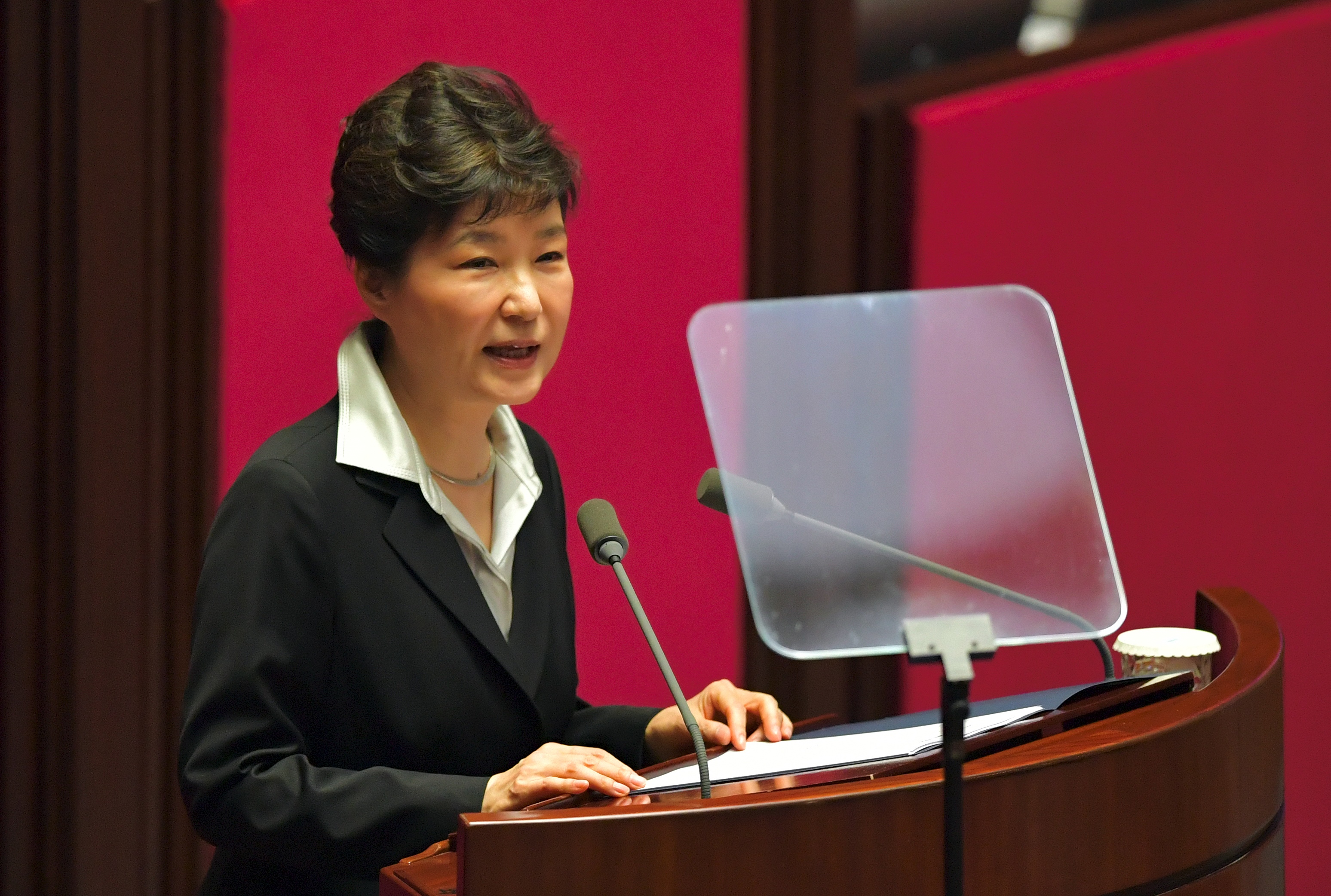

Park Geun-Hye on October 24 called for a constitutional revision that could allow future presidents to serve two terms in office. / AFP PHOTO /
SEOUL, South Korea (AFP) — South Korean President Park Geun-Hye on Monday called for constitutional reform that could allow future presidents to serve two terms — a sensitive issue for a country tainted by memories of long-term, autocratic rule.
While its constitution grants enormous power to the executive, South Korea is one of the only economically advanced liberal democracies to restrict the presidency to a single five-year term, with no possibility of re-election.
The limit was set back in 1987 as South Korea transitioned to democracy after decades of military rule, and sought to pre-empt any return to extended periods of authoritarian control.
Critics say the cap has outlived its use and rendered the executive office perpetually unstable, allowing little time or motivation for consensus building as presidents push hard on legacy issues with no concern about re-election.
During a televised parliamentary address on Monday, Park called the current constitution outdated and said the government should begin discussion to lay the groundwork for its reform.
“The constitution on a five-year single term presidency may have been appropriate in the past during democratisation,” Park told lawmakers.
“But now it has turned into a jacket that does not fit.”
Without mentioning a specific agenda, Park said she would set up a government committee to push through a constitutional revision before the end of her term in early 2018.
Her presidential office stressed that there was no possibility of Park herself running for a second term.
“Under the current constitution, the revision will not apply to the current president,” presidential spokesman Kim Dong-Jo said.
The proposal was something of an about-turn for Park, who had previously labelled opposition calls for constitutional reform as a “black hole” that would paralyse the government at a time of economic slowdown.
The president, whose popularity ratings have plunged in recent months, said changes were needed to ease the highly confrontational nature of domestic politics.
“Under the current system where confrontation and division are preventing us from taking a step forward, we cannot guarantee a bright future for South Korea,” she said.
© 1994-2016 Agence France-Presse
